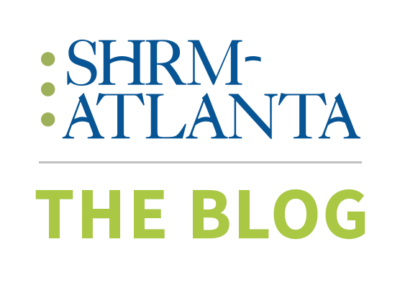By: Kristen Stough, Division Director, Robert Half Finance and Accounting

The ultimate goal for professionals is to find a job you love and stick with it. However, according to the latest JOLTS report, the number of people who voluntarily quit their jobs raised to 3.3 million in March, a 200,000 increase from the beginning of 2018. But why are people so quick to quit their stable income jobs? Happiness. People search for something bigger and better in order to give their work life more meaning.
For managers, it’s important to find out whether employees actually find their job fulfilling – and what should be changed if it’s not. This can be done during their annual performance review, as part of an impromptu “catch up” meeting, or by getting employees to fill out a questionnaire. Questions can include:
- Do you find the job meaningful and challenging? Employees are more actively engaged in their work when it tests the limits of their skills, and they can see its value in the bigger picture. This is a good opportunity to find out whether the employee might benefit from being in a more challenging project, or being assigned more responsibility.
- Are you happy with the training and/or mentoring we provide? Most people want to continuously grow their careers. If you can support them in their personal development goals (and provide the career opportunities they desire), there’s a greater likelihood that they will stick with your company for the long term.
- How would you rate your team? A big part of job satisfaction relates to how well people work together, so it’s important that you ask employees how they view their team’s performance. Does every member take on a fair share of the team’s tasks? How well do team members collaborate on tasks? And do they feel that team communication is always open and honest?
- How is your experience with management? There is a direct relationship between a company’s management style and the day-to-day satisfaction of its employees. “Does your manager provide the training and mentoring you need?” and “How often does your team leader reward you for doing good work?” are the types of questions that can be asked by HR staff or as part of a 360-degree feedback process.
- How often do you feel stressed? Studies have proven the link between chronic workplace stress and absenteeism, lower job performance, and even serious health issues such as depression. Sometimes stress is unavoidable. But asking this question can help you avoid “one size fits all” solutions that may work for some employees, but not others. For example, some people can feel stressed by a lack of job stability, and would benefit from having a long-term career plan; others may prefer the flexibility of being able to “hop” between roles until they find one that they can resonate job satisfaction towards.
Although managers can take steps to create a happier work environment, they aren’t the only ones who can fan the flames of employee happiness. When asked who’s responsible for keeping spirits high on the job, 25 percent of North American workers surveyed said it was their responsibility alone. Another 5 percent said it was all in their company’s hands. The majority of respondents – 70 percent – cited a combination of the two.
Professionals working within the Human Resource field cited that their number one happiness booster at an organization is having pride in their company (followed by interest in the work, and feeling a sense of accomplishment from their work). Being proud of the company you work for can make our break your journey.
Here are 5 tips professionals use to maintain their spark as they build a tenure at an organization.
- Find your passion. Think about your company’s higher purpose: How is it making the world a better place? For example, if you work at a CPA firm, you aren’t only performing accounting functions – you are helping client businesses grow and thrive.
- Deepen your connections. Having friends at work makes every day more fun. Go out of your way to socialize and build camaraderie with those around you.
- Mix it up. Don’t wait for your manager to offer you new projects. Be proactive – talk to your boss about new assignments to broaden your skill set and contribution to the firm. This not only increases your engagement level but also your earning potential.
- Show gratitude. Take the time to thank coworkers for their help and compliment others for a job well done. This will brighten their day while also giving your spirits a boost.
- Sweeten the pot. Keep up with compensation trends and ask for a raise, if warranted, as you take on more responsibility.
The happiest employees feel supported by peers and managers, are passionate about their work, and have the tools and resources they need to be effective. Managers and employees should work together to create an environment where they feel empowered and happy.
This article first appeared in The SHRM-Atlanta Connection, an eMagazine created exclusively for our members, filled with information about current HR topics and information about our association.
Already a SHRM-Atlanta Member? Click here to view previous issues.
Not a member? Membership in SHRM-Atlanta offers everything you need to reach your full potential as an HR leader. Click here to join now.




